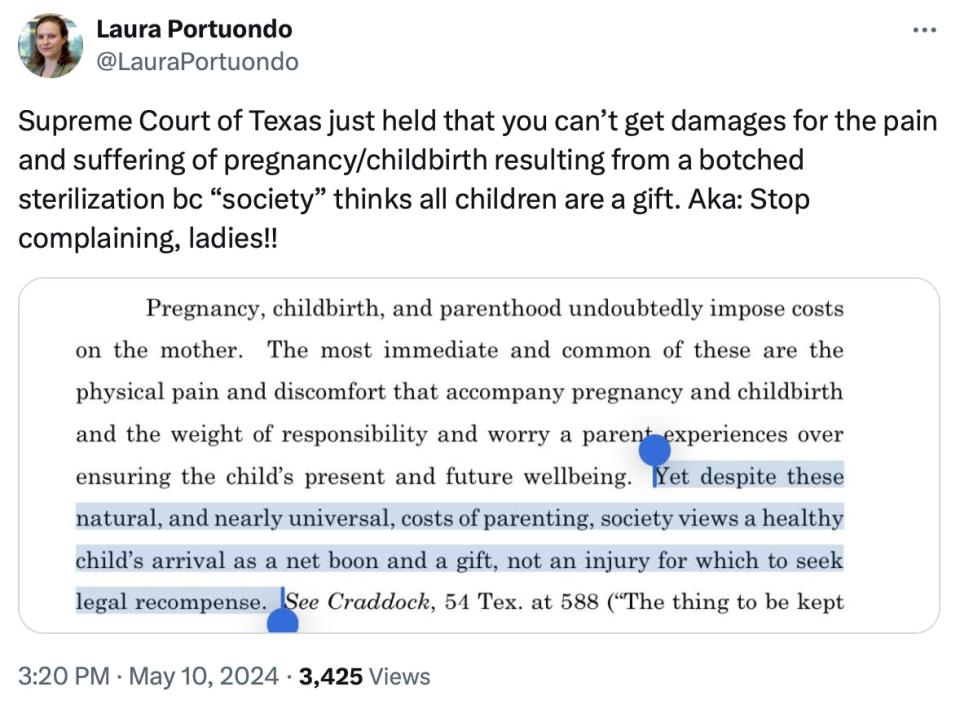Texas Top Court Has Horrific Judgment Over Failed Reproductive Surgery
- Oops!Something went wrong.Please try again later.
The Texas Supreme Court ruled Friday that an El Paso woman who gave birth despite supposedly receiving a tubal ligation can’t sue her medical provider because “society views a healthy child’s arrival as a net boon and a gift.”
The nine-member court, whose members are all Republican, ruled unanimously that Grissel Velasco could not seek damages from Dr. Michiel Noe and his medical practice, Sun City Women’s Health Care, for medical expenses, physical and mental harms, and the costs of raising her now 8-year-old girl.
“Texas law does not regard a healthy child as an injury for which a parent must be compensated but, rather, as a life with inherent dignity and profound, immeasurable value,” wrote Justice Rebeca Huddle.

Under Texas law, a parent could only recover damages, such as medical expenses, from during the pregnancy, delivery, and afterward—nothing more, Huddle said.
Huddle cited the fact that Noe had reimbursed Velasco $400 for the cost of the tubal ligation, a sterilization procedure in which a woman’s fallopian tubes are cut and tied to prevent pregnancy, and that her pregnancy was covered by the federal Children’s Health Insurance Program.
Velasco’s lawyer, Jose Lopez, said in a statement that the ruling had “taken away a patient’s voice and choice and has immunized the negligent doctor from civil liability.”
The ruling fits right along with Texas’s extreme laws on abortion, which include a near-total ban passed in 2021. Last summer, a group of women sued the state over the law and one woman vomited while telling the story of how she was forced to give birth to a baby that died shortly after delivery.
Anti-abortion activists in the state want to execute women and minors who seek abortions or in-vitro fertilization. And the state’s attorney general, Ken Paxton, has threatened to prosecute doctors and hospitals for carrying out abortions, even if a court orders one out of health concerns. All of this seems to indicate a forced birth-or-else policy in the state.

